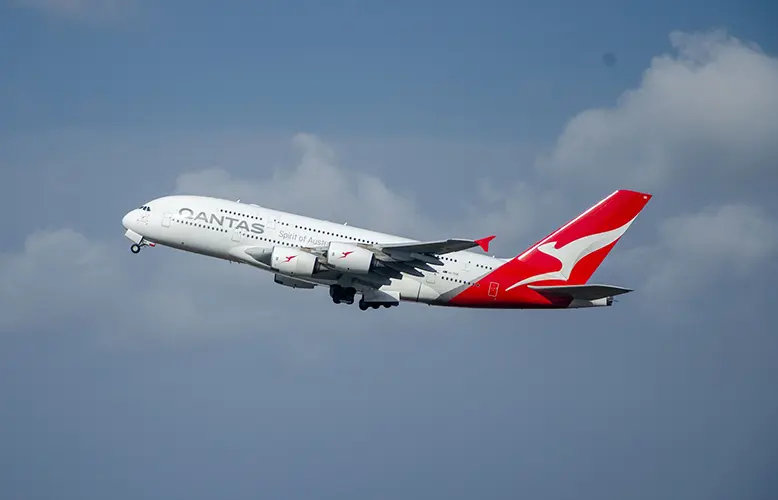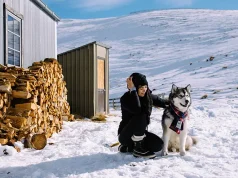Are you eager to explore the world and experience new cultures but limited by a tight budget? Learn the art of travel! Proper research, education, and planning can help you start your journey. In this blog post, we’ll discuss how to save on flights, accommodations, food/drink, and sightseeing. Follow these strategies and make budget constraints work for your future trips. Start packing… or dreaming – whichever comes first!

Make a budget and stick to it
Creating and adhering to a budget is a crucial element in practicing wise saving habits while traveling. This involves determining what is most important for your trip and prioritizing accordingly. Are you more interested in luxury accommodations or local experiences? Do you want to splurge on fine dining or try street food from different vendors? By identifying your priorities, you can allocate your funds accordingly and make sure you don’t overspend in one area. It’s also important to be realistic with your budget and not try to stretch it too thin. Remember, travel isn’t just about how much money you spend, but the experiences and memories you create along the way.
Take advantage of loyalty programs and discounts
When traveling, a savvy way to cut down on expenses is by leveraging loyalty programs and discounts. This not only helps you save money but also enhances your overall travel experience. Many airlines, hotels, and other travel companies offer rewards or membership programs that can help you save on future trips. For example, if you frequently fly with a particular airline, joining their frequent flier program can earn you points or miles that can be used towards free flights or upgrades. Similarly, signing up for hotel loyalty programs can give you access to exclusive discounts and perks. Additionally, keep an eye out for discounts and promo codes offered by travel websites or companies. For instance, you can consider Super Travel Promo Codes or other similar deals to score discounts on flights, hotels, and more. Do some research and compare prices before making a decision, as these small savings can add up over time.
Travel during off-peak times to get cheaper prices on airfare and accommodations
To save wisely while traveling, it is crucial to schedule your trips during off-peak times. This means avoiding popular tourist seasons and peak travel periods, such as holidays or school breaks. During these times, prices for flights and accommodations tend to be higher due to increased demand. Instead, consider traveling during shoulder seasons or low seasons when there are fewer tourists and prices are lower. Not only will you save money, but you’ll also avoid large crowds and have a more authentic experience in your chosen destination. Moreover, if flexibility allows, try to book flights on weekdays rather than weekends as they tend to be cheaper. By being strategic with your travel dates, you can significantly reduce the cost of airfare and accommodations, leaving more room in your budget for other activities.

Consider staying in hostels or guesthouses instead of hotels to save money
Consider staying in hostels or guesthouses to save money while traveling. These types of accommodations typically offer shared rooms or dorm-style setups at a lower cost than private hotel rooms. While this may not be ideal for everyone, it can be a great option for budget travelers looking to save on lodging costs. Also, hostels and guesthouses often have communal spaces where you can meet other travelers and exchange tips and stories. This can provide a more social aspect to your trip, making it an even more enriching experience. Just be sure to research the hostel or guesthouse beforehand and read reviews from previous guests to ensure a safe and comfortable stay. You may also consider using websites or apps like Airbnb to find affordable and unique accommodations, such as homestays or apartments. Not only will you save money, but you’ll also get a taste of local living and culture.
Research the local restaurants beforehand and look for deals like “happy hour” or daily discounts
Exploring new and delectable cuisines from diverse cultures is undoubtedly one of the most delightful aspects of traveling. However, dining out can quickly eat up your budget if you’re not careful. To save wisely on food expenses, research local restaurants in your chosen destination beforehand. Look for options that fit within your budget and also offer a variety of dishes to try. Furthermore, keep an eye out for deals like “happy hour” specials or daily discounts that can help you save money on meals. This is particularly useful when traveling to popular tourist destinations where prices may be higher at restaurants catered towards tourists. By planning ahead and choosing budget-friendly dining options, you’ll not only save money but also have a more authentic culinary experience. Indulge in local street food, which is often cheap and a great way to taste authentic flavors. Just be sure to use caution and choose clean and busy food stalls for your safety.
Purchase travel insurance before you leave so you’re covered in case of an emergency
While traveling can be an incredibly fun and enriching experience, it’s important to always prepare for the unexpected. Purchase travel insurance before you leave for your trip so that you’re covered in case of any emergencies. This can include medical emergencies, flight cancellations or delays, lost luggage, and more. Travel insurance provides a safety net for unforeseen circumstances that may arise while on your trip. Without it, you may end up spending a significant amount of money to cover such emergencies or disruptions. When choosing travel insurance, make sure to read the fine print and understand what is covered and what is not. It’s also important to compare policies from different companies to find the best coverage for your specific needs and budget. While it may seem like an additional expense, travel insurance can actually save you a lot of money in the long run and give you peace of mind during your travels.
Learning the art of travel can help you save wisely while exploring the world. Prioritize what’s important to you and be flexible with your plans. With proper research, education, and planning, you can embark on exciting adventures without breaking the bank. Happy travels!





